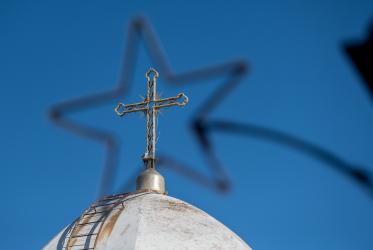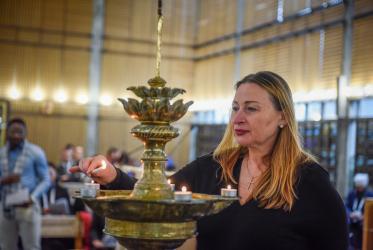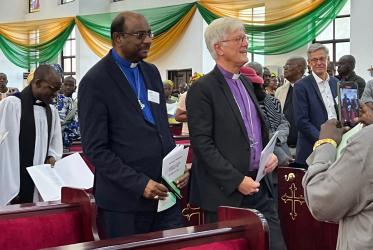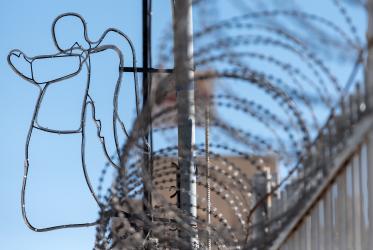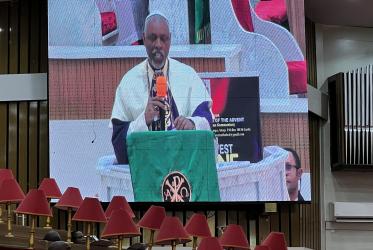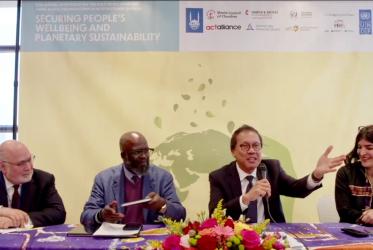Displaying 1 - 20 of 219
Messages of hope amid strife ring for New Year
11 January 2024
“God empowers refugees and displaced people"
12 December 2023
WCC webinar explores decolonizing beauty
11 December 2023
